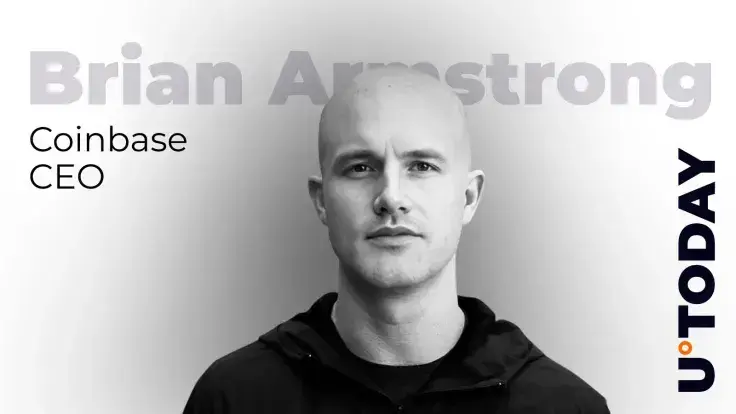Trump's Bold Move: SEC Crypto Expert Michael Selig to Head CFTC

President Donald Trump has nominated Michael Selig, currently the chief counsel for the Securities and Exchange Commission’s (SEC) crypto task force, to serve as the chairman of the Commodity Futures Trading Commission (CFTC). This appointment marks President Trump’s second effort to fill the CFTC’s top position, following the previous stalled nomination of Brian Quintenz. Selig’s background includes working as an aide to SEC Chairman Paul Atkins, where he played a crucial role in aligning regulatory strategies between the SEC and CFTC regarding financial and crypto market oversight. His selection is seen as a significant move amidst the growing landscape of crypto regulation.
Before his tenure at the SEC, Selig was a partner at Willkie Farr & Gallagher, specializing in asset management. The CFTC, an agency responsible for regulating futures, swaps, and prediction markets, is gaining heightened importance as Congress actively considers new legislation for crypto market structures. Selig’s nomination will require confirmation by the Senate before he can assume the role, reflecting the rigorous process for such a high-profile position within financial regulatory bodies.
This nomination aligns with President Trump’s increasingly vocal support for the cryptocurrency industry. Recently, Trump granted a full pardon to Binance founder Changpeng Zhao, asserting that Zhao's prosecution was part of the prior administration’s “war on cryptocurrency.” This White House-confirmed action is indicative of a broader governmental shift in its approach to the crypto sector, signaling a more favorable environment for digital assets and related businesses.
Momentum for U.S. crypto legislation has accelerated in parallel with these developments. Coinbase CEO Brian Armstrong expressed strong optimism, stating that the industry was “90%” of the way toward securing the passage of the Digital Asset Market Clarity Act, often referred to as the CLARITY Act. Armstrong reported very productive discussions with key senators from both parties, including Majority Leader Chuck Schumer, Sens. Kirsten Gillibrand, Cynthia Lummis, and Tim Scott, even amidst a partial government shutdown.
The CLARITY Act, which previously passed the House of Representatives in July with substantial bipartisan support (294–137 votes), aims to provide much-needed regulatory clarity. Its core objectives include defining which digital assets fall under the jurisdiction of the SEC versus the CFTC, and establishing comprehensive rules for decentralized finance (DeFi), stablecoins, and custody services. This legislative effort is a direct response to the industry’s demand for a clearer regulatory framework.
Despite the legislative progress, final sticking points for the CLARITY Act reportedly centered on the precise methods for regulating DeFi and whether consumers should be permitted to earn rewards on stablecoins. Crypto advocates have consistently urged lawmakers to focus regulation on intermediaries rather than open-source code, while also expressing concerns that the banking lobby is attempting to limit the yield opportunities for stablecoin holdings, complicating the finalization of the bill.
Notwithstanding procedural delays caused by the government shutdown, a high level of optimism persists regarding the bill’s eventual passage. Senator Lummis, a prominent advocate for crypto clarity, anticipated that the bill would reach President Trump’s desk before the year-end, hailing it as the most significant bipartisan legislative step taken to date toward establishing a clear regulatory environment for cryptocurrency in the United States.
Recommended Articles
Bitcoin to $1M? Coinbase CEO Makes Daring Prediction!

Coinbase CEO Brian Armstrong predicts Bitcoin could reach $1 million by 2030, citing regulatory clarity, U.S. adoption, ...
Ethereum Roars Back! ETH Shatters All-Time High, Igniting Market Excitement

Ethereum (ETH) has reached a new record high of $4,885 for the first time in nearly four years, surging over 15% in a si...
Ethereum Skyrockets to New All-Time High, Legendary Trader Reacts with Awe

Ethereum (ETH) has achieved a new record high of $4,885, surging over 15% in a single day for the first time in nearly f...
Ethereum Erupts! ETH Blasts Past 2021 Highs, Market Roars

Ethereum (ETH) has hit a new record high of $4,885, surging over 15% in a single day, fueled by Federal Reserve Chairman...
Ethereum Skyrockets to New All-Time High, Crypto World Reacts!

Ethereum (ETH) has reached a new all-time high of $4,885, surging over 15% in a single day, driven by signals of a Feder...
You may also like...
Blazers Triumph Amidst Turmoil: Team Wins Day After Billups' Arrest

The Portland Trail Blazers navigate a sudden crisis after head coach Chauncey Billups' arrest in a federal investigation...
NBA Commissioner Adam Silver 'Deeply Disturbed' by Shocking Indictments

NBA Commissioner Adam Silver expressed deep concern over recent federal indictments involving Terry Rozier and Chauncey ...
Hollywood's Next Frontier: Taylor Sheridan's Ambitious Plan for Texas

Taylor Sheridan's move to Texas has profoundly reshaped Fort Worth's economy, attracting significant investment and fost...
Tron: Ares Overtakes Infamous Disney Box Office Bomb, Shaking Up Studio History

Disney is facing significant box office challenges in 2025, echoing past struggles with mega-budget bombs like <em>The N...
Rock Royalty Joins Forces: Jon Bon Jovi Teases Bruce Springsteen & Jelly Roll Collabs

Jon Bon Jovi's newly expanded album, "Forever (Legendary Edition)," features exciting collaborations with Bruce Springst...
Emotional 2Pac History: 'Brenda's Got a Baby' Inspirations Reunited After Decades

The real-life inspiration behind Tupac Shakur's classic song "Brenda's Got a Baby" has found an astonishing continuation...
Discover Canada's Hidden 'Scottish Gem': A Town Preserving Highland Culture and Traditions

Discover Fergus, Ontario, Canada's 'most Scottish town,' where history, architecture, and culture deeply reflect its Sco...
Star Sonequa Martin-Green Teases Major Reagan Family Reunion for 'Blue Bloods' Spin-Off

Discover 'Boston Blue,' the new CBS spin-off that brings Danny Reagan to Boston, partnering with Lena Silver from a prom...